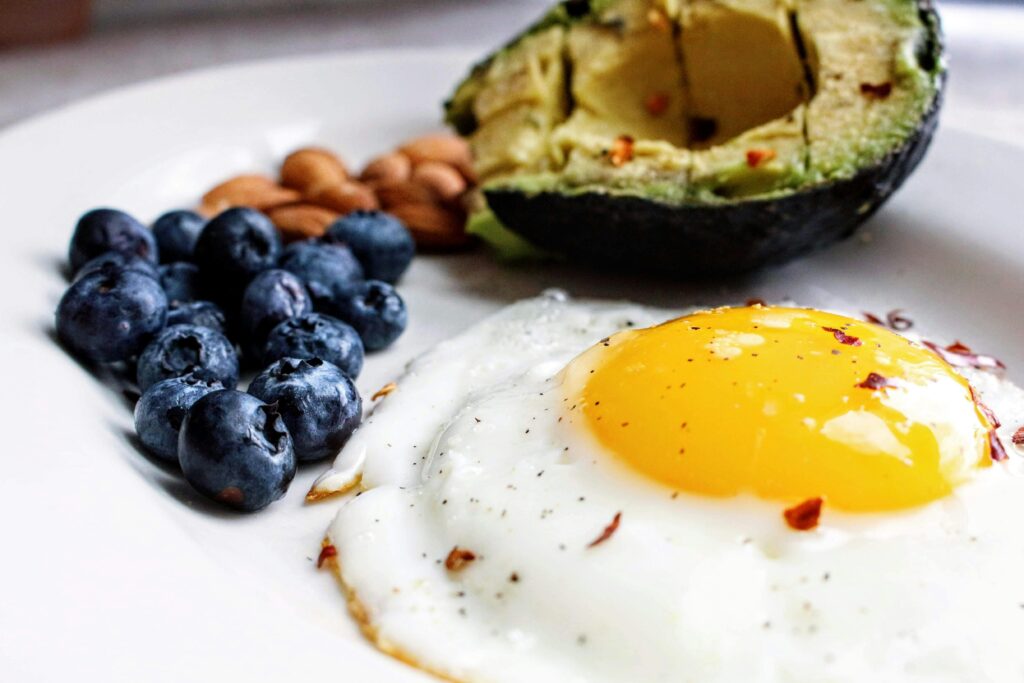
Emotional eating is a challenge for many people, particularly women who struggle with yo-yo dieting and an unhealthy relationship with food. If you often find yourself eating to soothe stress, boredom, or sadness, choosing the right diet can make a huge difference. But with so many options—Keto, Mediterranean, and Intuitive Eating—how do you decide which one is best for you?
This post will break down the pros and cons of each approach, comparing how they impact emotional eating, weight loss, and long-term sustainability. By the end, you’ll have a clear understanding of which diet aligns best with your personal needs and relationship with food.
Understanding Emotional Eating
Before we dive into the diets, let’s define emotional eating. It’s the habit of using food as a coping mechanism for negative emotions rather than eating in response to physical hunger. Emotional eaters often experience:
- Cravings for high-calorie, comfort foods (like sweets, pasta, or fried foods).
- Guilt or shame after eating, leading to cycles of restriction and binging.
- Loss of control around food, feeling unable to stop eating even when full.
To find a diet that works, we need to focus on approaches that promote satiety, balance blood sugar levels, and improve emotional well-being. Remember, it’s so much more than just about losing weight – it about feeling good!
Diet 1: The Keto Diet – Can It Curb Emotional Eating?

What Is the Keto Diet?
The Ketogenic (Keto) Diet is a low-carb, high-fat diet that puts your body into ketosis, a state where it burns fat for energy instead of carbohydrates. This diet is typically composed of:
- High fats (avocados, nuts, olive oil, butter).
- Moderate protein (meat, fish, eggs).
- Very low carbohydrates (less than 50g per day).
How It Helps Emotional Eaters
- Reduces cravings – Since Keto stabilizes blood sugar and insulin levels, it prevents the highs and lows that often trigger emotional eating.
- Increases satiety – High-fat meals keep you fuller for longer, reducing the urge to snack out of boredom or stress.
- Affects brain chemistry – Ketones produced during ketosis have been shown to reduce anxiety and depression, which may decrease emotional eating triggers.
Potential Downsides
- Difficult to maintain – The restrictive nature of Keto can be challenging for emotional eaters who already struggle with food rules.
- Risk of bingeing – If carbs are completely eliminated, it can lead to strong cravings and eventual breakdowns in willpower. It can therefore be difficult to sustain this diet.
- Lack of flexibility – Social events and dining out can be tough, which may cause stress and frustration.
Best for: People who struggle with sugar cravings, blood sugar spikes, and feel best on structured meal plans.
Diet 2: The Mediterranean Diet – A Balanced, Holistic Approach

What Is the Mediterranean Diet?
The Mediterranean Diet is inspired by the eating patterns of countries like Greece, Italy, and Spain. It focuses on whole foods, healthy fats, and balanced meals:
- Healthy fats (olive oil, nuts, fatty fish).
- Lean proteins (chicken, fish, legumes).
- Whole grains & fiber (quinoa, oats, lentils, fruits, vegetables).
- Minimal processed foods and sugar.
How It Helps Emotional Eaters
- Encourages mindfulness – Meals are eaten slowly and with enjoyment, which reduces mindless snacking.
- No food restrictions – Unlike Keto, no major food group is eliminated, making it easier to maintain long-term.
- Supports brain health – Omega-3s and antioxidants in this diet are linked to better mood regulation, which can help reduce stress eating.
Potential Downsides
- May not lead to quick weight loss – If weight loss is a goal, results may be slower compared to Keto.
- Carb-heavy – Some people feel triggered by having access to grains and bread, as they can be easy to overeat.
- Lack of strict rules – Some emotional eaters do better with more structure, and the Mediterranean diet relies on self-control rather than rigid guidelines.
Best for: Those who want a flexible, sustainable way of eating that supports long-term emotional health.
Diet 3: Intuitive Eating – Breaking Free from Dieting

What Is Intuitive Eating?
Intuitive Eating is an approach that rejects dieting altogether. Instead of following external rules, you listen to your body’s natural hunger and fullness cues and eat accordingly. The core principles include:
- Eating when hungry and stopping when full.
- Removing guilt from eating any food.
- Learning to distinguish physical hunger from emotional hunger.
- Practicing self-compassion rather than strict rules.
How It Helps Emotional Eaters
- Eliminates the binge-restrict cycle – Since no foods are off-limits, cravings decrease over time.
- Focuses on emotional triggers – Encourages self-awareness around emotional eating patterns and finding alternative coping mechanisms.
- Reduces stress around food – Removes guilt and anxiety, creating a healthier relationship with eating.
Potential Downsides
- Requires self-awareness – Emotional eaters may struggle with recognizing true hunger and fullness at first.
- May not lead to immediate weight loss – If weight loss is a goal, it may take longer than structured diets.
- Can be difficult for people used to dieting – Letting go of food rules can feel overwhelming.
Best for: Those who want to heal their relationship with food and break free from diet culture.
Side-by-Side Comparison
| Factor | Keto | Mediterranean | Intuitive Eating |
| Food Restrictions | Very high | Moderate | None |
| Impact on Cravings | Reduces sugar cravings | Moderates hunger & cravings | Eliminates restriction-driven cravings |
| Sustainability | Hard to maintain | Long-term friendly | Lifelong approach |
| Weight Loss Speed | Fast, but may not be sustainable | Moderate, steady loss | Varies, depends on self-regulation |
| Emotional Eating Focus | Helps with cravings but doesn’t address emotional triggers | Encourages mindful eating but not a specific strategy for emotional eating | Fully focused on emotional eating & food freedom |
| Best for… | Sugar addicts, people needing strict structure | Those who prefer balance & variety | People healing from diet culture & binge eating |
How to Choose the Best Diet for You
Ask yourself:
- Do I need structure or flexibility?
- If you need clear rules, Keto may be best.
- If you prefer flexibility, Mediterranean or Intuitive Eating are better options.
- Do I have a history of restrictive dieting and bingeing?
- If yes, Intuitive Eating may help break the cycle.
- Am I looking for fast weight loss or a long-term sustainable plan?
- For fast results, Keto is effective.
- For long-term balance, Mediterranean is ideal.
- Am I comfortable listening to my hunger cues without external rules?
- If not, a structured diet like Keto or Mediterranean may be easier to follow.
Final Thoughts
There is no one-size-fits-all solution. The best diet for emotional eaters depends on your personality, past dieting experiences, and personal goals. If you struggle with emotional eating, addressing your relationship with food is just as important as choosing the right meal plan.
